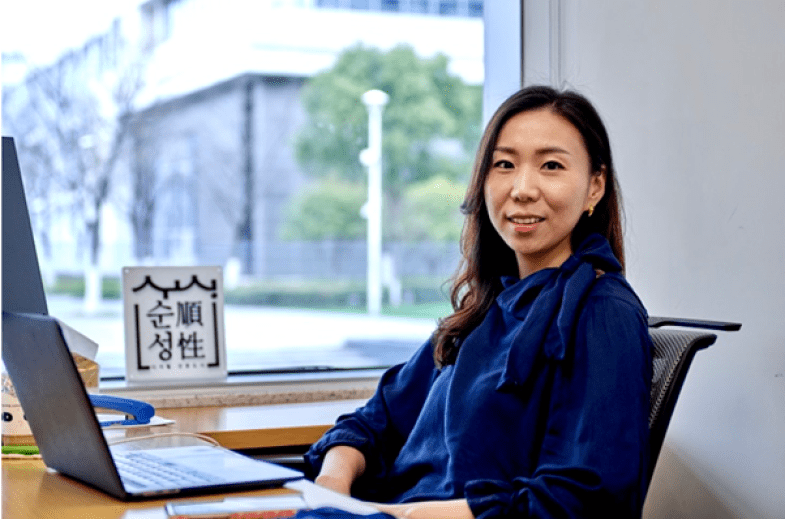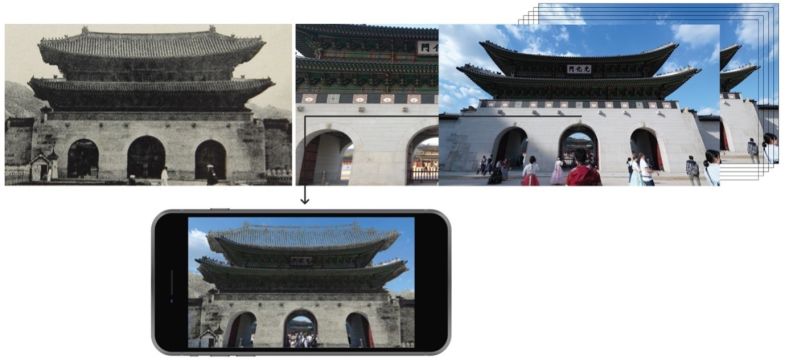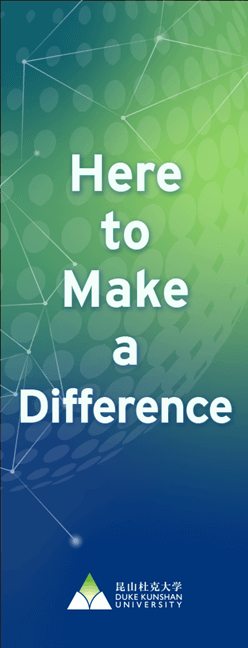Screens dictate much of the way we interact with the world today, often leading to alienation as they draw us further into our own little bubbles. Art historian Jung Choi is working to change that.

Jung Choi, assistant professor of art history and visual studies at Duke Kunshan, works with digital media and augmented reality
Choi’s focus is on digital media and augmented reality (AR), specifically how to create visual interfaces that return users to the physical world and allow people to interact and experience their surroundings in new, exciting ways.
Observing how some commercial enterprises and militaries use digital media to segregate people from each other and their natural environments, she says she is interested in how the technology can instead help alleviate alienation.
“I critique this dark side of digital media by looking at what is invisible on the surface,” said Choi, who is an assistant professor of art history and visual studies at Duke Kunshan. “Digital media has limited people’s movements – you can tour the world right from your computer. I want to see if AR or creative digital media can be used in a way that brings human bodies back to their physical environments.”
One of Choi’s main projects in recent years has been Digital Humanities City: Restoration of Soonsung, which in addition to media art festivals, exhibitions, workshops and lectures includes a mobile AR application scheduled for launch in 2021.

The past and present of Gwanghwamun overlaps in “Phase Space” (2020) by artist Jiyoon Chun, one of Choi’s collaborators on the mobile application.
The app will allow visitors to Hanyang Dosang, the ancient city wall in Seoul, South Korea, to appreciate the structure while simultaneously receiving visual information based on historical and cultural research that explains the events, philosophy and art that brought the site into being.
Choi is creating the AR app with six humanities scholars from various disciplines, from literature to urban planning, and six contemporary artists. She said the project aims to draw people to the site to experience the beauty of Seoul physically rather than just seeing or learning about the place on a computer.
“I believe in phenomenological experiences. You have to experience something physically in its roundness to completely understand it,” she said, adding that she believes the AR app will encourage visitors to Hanyang Dosang to see the site in a new way.
Choi’s research also engages social and cultural narratives to explore possibilities for more positive and constructive uses of digital media.
In a project widely publicized on South Korean television, she invited North Korean refugees to tell their stories through collaborative projects with contemporary artists. She has also curated a multisensory installation and invited children with visual impairments to interact with the work, to topple the idea that art is a solely visual.

The Restoration of Soonsung app featuring AR work by artist Jiyoon Chun.
“What we do as artists and curators, it’s making a small gesture; whether it makes a difference or not, we try to create awareness about important things,” said Choi, who added that through her work she tries to give a voice to people who might not be heard otherwise.
In March 2021, Choi taught the exploratory course Presencing the Past: Reliving Memories of Kunshan through Augmented Reality as part of Duke Kunshan’s spring mini term. The course encouraged undergraduates to incorporate social, cultural and digital elements into their artistic projects, and create “psychogeographical maps” based on memories rather than purely geographical information.
As with her other work, the goal was to show how digital media has the power draw people back to the physical world and burst alienating virtual bubbles.
Choi doesn’t see art as a panacea to the dangers of digital media, but she does believe strongly that creative solutions and projects about alienation can create discourse and compel people to think about this issue.
“Or at least,” she said, “it can make life more livable.”
Find out more about the international faculty who teach Duke Kunshan’s distinctive liberal arts curriculum.









